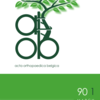Evaluation of orthopaedic residents from SOCLE phase to osteosynthesis simulation: feedback from the AO course
Published online: Oct 21 2024
Abstract
Introduction: In 2019, the French College of Orthopaedic and Traumatology (CFCOT) made the AOTrauma course entitled “Basic Principles of Fracture Treatment” mandatory for all orthopaedic residents during the first year of their educational program i.e. during the SOCLE phase (common base phase). The objective of the evaluation was to determine which factors influenced the results of the practical work, according to the characteristics of the students and their experiences in laparoscopy or in arthroscopy in the operating theatre or on the simulator for arthroscopy.
Material and methods: In 2019 a total of 121 residents were included, corresponding to the full promotion. They filled out a preliminary questionnaire giving information on their general characteristics. Eight different workshops were evaluated. The grading of skills was as follows: “A” for “acquired”, “B” for “in progress” and “C” for “not acquired”. The data was collected on a computerized spreadsheet. The statistical analysis used the Welch test, the Chi2 test and the Fisher test.
Results: The average “A” percentage across all workshops was 87.8%. Factors predictive of a good result were experience in laparoscopy as the main operator (p = 0.014) and male sex (p = 0.014). We observed that the residents who had not performed arthroscopy in clinical practice had done more training on simulators than the others (p = 0.044). Residents who had performed at least one arthroscopy as a main operator were predominantly female (p < 0.001).
Discussion: The interest of this study lies in the novelty of the analysis of the results of a whole promotion of residents in the SOCLE phase in osteosynthesis simulation.
Conclusion: This novel evaluation deserves to be repeated by refining the evaluation tools before and during the course. It allowed us to know the weak points of the students during the simulated learning.
